
Kan de EU de opkomst van de euroscepsis en het populisme overleven? Waarom blijkt internationale samenwerking op het gebied van wereldwijde milieukwesties zo moeilijk te zijn? Hoe gaan we in een tijd van steeds verdergaande globalisering om met andere kwesties?
IRIO in Groningen is een multidisciplinaire, Engelstalige opleiding waarin je politieke kwesties op een internationaal niveau bestudeert. Je kijkt naar de plaats van politiek, geschiedenis, economie en rechten in internationale betrekkingen, maar ook naar de rol van internationale organisaties. Ook krijg je taalvaardigheidsonderwijs in een moderne vreemde taal en kies je een minor die bij jouw profiel past.
Als je kiest voor IRIO in Groningen, dan kies je voor:
Let op: IRIO is een numerus fixus-opleiding, waardoor maar 300 studenten per jaar worden toegelaten.
IRIO in Groningen is een bacheloropleiding waarbinnen Internationale Betrekkingen geen specialisatie is maar het kernonderwerp. De nadruk ligt op de plaats van politiek, geschiedenis, economie en rechten in internationale betrekkingen, maar ook op de cruciale rol van internationale organisaties. Er wordt aandacht besteed aan onderzoeksvaardigheden, taalvaardigheidstraining, methoden, historische context en theorie. En last but not least: in Groningen studeer je IRIO samen met zowel Nederlandse als internationale studenten en medewerkers!
Het eerste jaar bestaat uit inleidende modules op het gebied van internationale betrekkingen, rechten en economie. Daarnaast studeer je een taal. Je kunt ofwel beginnen met Chinees, Nederlands, Italiaans, Russisch, Spaans of Zweeds, of je Engels, Frans of Duits verbeteren.
| Semesters | ||||
|---|---|---|---|---|
| VakkenVakkencatalogus > | 1a | 1b | 2a | 2b |
| History of International Relations (5 EC) | ||||
| International Politics (5 EC) | ||||
| Introduction to International and European Law (5 EC) | ||||
| Academic Skills for IR (5 EC) | ||||
| History of International Relations 2 (5 EC) | ||||
| Political Science (5 EC) | ||||
| International Organisation (5 EC) | ||||
| Introduction to Economics (5 EC) | ||||
| Language Course 1a (10 EC) | ||||
| International Organisation 2 (5 EC) | ||||
| Statistics for IR (5 EC) | ||||
In het tweede jaar verdiep je je kennis van de internationale betrekkingen, economie en rechten. Je gaat kijken naar besluitvormingsprocessen op (inter-)nationaal niveau, internationale betrekkingen worden in een theoretisch en filosofisch kader geplaatst, je bestudeert internationale monetaire kwesties, en je verbreedt je kennis van het recht van de Europese gemeenschappen en de Europese Unie. Ook rond je in dit jaar de taalmodules af.
| Semesters | ||||
|---|---|---|---|---|
| VakkenVakkencatalogus > | 1a | 1b | 2a | 2b |
| Language Course 2a (10 EC) | ||||
| Policy and Governance (10 EC) | ||||
| Theory of International Relations (10 EC) | ||||
| European Law (5 EC) | ||||
| Language Course 3 (10 EC) | ||||
| Methodology and Research Practice (10 EC) | ||||
| International Political Economy of Monetary Relations (5 EC) | ||||
In het laatste jaar van de opleiding kun je je specialiseren door een minor te kiezen in een vakgebied dat jou interesseert, bijvoorbeeld ontwikkelingsstudies. Ook kun je ervoor kiezen een semester in het buitenland door te brengen. Je volgt modules over internationaal recht en internationale handelstheorie. Ten slotte kies je een kernvak: een werkcollege waarbij een bepaald thema via literatuur- en bronnenonderzoek wordt bestudeerd.
| Semesters | ||||
|---|---|---|---|---|
| VakkenVakkencatalogus > | 1a | 1b | 2a | 2b |
| Minor (30 EC) | ||||
| International Political Economy of Trade (5 EC) | ||||
| Core Module IRIO and Bachelor Thesis (20 EC) 1. Kernvak naar keuze uit aanbod van ongeveer 10 kernvakken. 2. De bachelorscriptie en kernvakscriptie zijn geïntegreerd. | ||||
| International Law (5 EC) | ||||
Let op: hierboven staat het programma van het huidige collegejaar (2025-2026). Per 2026-2027 wijzigt het vakkenaanbod van deze opleiding. In het najaar van 2025 wordt hierover meer bekend.
| Programma-opties |
|---|
| Minoren (minor) Het vijfde semester besteed je aan je minor: een pakket samenhangende vakken dat toekomstgericht is. Het bereidt je voor op een vervolg in een mastertrack of op de arbeidsmarkt. Kies uit een careerminor, buitenlandminor, universitaire minor of facultaire minor. |
| Rijksuniversiteit Groningen Honours College (honoursprogramma) Het Honours College geeft getalenteerde, gemotiveerde studenten de kans om nog meer uitgedaagd te worden door Honours programma's te volgen en deel te nemen aan tal van andere activiteiten. Het Honours College bestaat uit een verbredend deel en een verdiepend deel en heeft een studielast van 30 ECTS studiepunten naast de 180 ECTS studiepunten uit je reguliere bachelorprogramma. |
If you have passed the VWO (pre-university education) exam in English, you satisfy the language requirement.
If you have passed the VWO (pre-university education) exam in English, you satisfy the language requirement.
If you have passed the VWO (pre-university education) exam in English, you satisfy the language requirement.
If you have passed the VWO (pre-university education) exam in English, you satisfy the language requirement.
Language requirement English: Minimum requirement of TOEFL iBT 90 (with a minimum of 21 on all items), or IELTS 6.5 (with a minimum of 6 on all items) or Cambridge C1 Advanced or C2 Proficiency with a minimum score of 180. For more information, see: https://www.rug.nl/let/studeren-bij-ons/bachelor/aanmelding-en-inschrijving/language-requirements-ba
| Specifieke eisen | Extra informatie |
|---|---|
| vooropleiding |
Dutch VWO diploma, a German Abitur, an International Baccalaureate diploma (minimum score: 24), a European Baccalaureate or another diploma that is sufficient for acceptance to a Dutch university. Students with a Dutch 'hbo propedeuse' diploma also need to meet the language requirements mentioned above. |
| taaltoets cijfer |
De opleiding IRIO wordt in het Engels gegeven. Nederlandse studenten met een VWO diploma hoeven geen extra documentatie in te dienen betreffende hun Engelse taalniveau. Voor overige EU-studenten zal de toelatingscommissie contact opnemen op het moment dat testresultaten vereist zijn voor toelating. Alle studenten buiten de EU zullen hun testresultaten in moeten leveren. De minimale taalvereiste is: TOEFL iBT 86 (met een score van minimaal 20 op alle onderdelen), of een IELTS 6.5 (met een score van minimaal 6 op alle onderdelen. ERK level B2 (bij voorkeur C1). |
| overige toelatingseisen |
De IRIO opleiding van de Rijksuniversiteit Groningen is een numerus fixus programma met een ongewogen loting. For details about the application and lottery procedure, please
visit: http://www.rug.nl/let/irio-bachelor-admission.
Participation in the lottery is required for all candidates!
|
De Faculteit der Letteren gaat er van uit dat jij, via een bezoek aan de Open dagen, deelname aan een Eén Dag student en/of aan een Webklas, jezelf goed hebt voorbereid op de opleiding van jouw keuze. Op basis van deze voorlichtingsactiviteiten bepaal jijzelf of je goed matcht met de opleiding.
Vragen over matching bij de Faculteit der Letteren? Hier kun je verdere informatie vinden: www.rug.nl/matching
Deze opleiding heeft een numerus fixus van maximaal 300 instromers per jaar.
More information on admission: https://www.rug.nl/let/irio-bachelor-admission
| Type student | Deadline | Start opleiding |
|---|---|---|
| Nederlandse studenten | 15 januari 2026 | 01 september 2026 |
| EU/EEA studenten | 15 januari 2026 | 01 september 2026 |
| non-EU/EEA studenten | 15 januari 2026 | 01 september 2026 |
| Specifieke eisen | Extra informatie |
|---|---|
| vooropleiding |
A Dutch VWO diploma, a German Abitur, an International Baccalaureate diploma (minimum score: 24), a European Baccalaureate or another diploma that is sufficient for acceptance to a Dutch university. For other VWO-equivalent qualifications, see: https://www.rug.nl/education/application-enrolment-tuition-fees/admission/procedures/application-informatie/with-non-dutch-diploma/entry-requirements/bachelor-entry-requirements/vwo-equivalent-qualifications. Students with a Dutch 'hbo propedeuse' diploma also need to meet the language requirements mentioned above. |
| taaltoets cijfer |
The IRIO programme is taught in English. Dutch students with a VWO diploma do not need to submit proof of their English proficiency. For other EU candidates, the Admissions Officer will notify you if you need to provide test results. All non-EU candidates will need to provide test results. The minimum level of English proficiency is: TOEFL iBT 90 (with a minimum of 21 on all items), or IELTS 6.5 (with a minimum of 6 on all items) or Cambridge C1 Advanced or C2 Proficiency with a minimum score of 180. |
| overige toelatingseisen |
The IRIO programme of the University of Groningen is a numerus fixus programme with an unweighted lottery. For details about the application and lottery procedure, please visit: http://www.rug.nl/let/irio-bachelor-admission. Participation in the lottery is required for all candidates! |
Deze opleiding heeft een numerus fixus van maximaal 300 instromers per jaar.
More information on admission: https://www.rug.nl/let/irio-bachelor-admission
| Type student | Deadline | Start opleiding |
|---|---|---|
| Nederlandse studenten | 15 januari 2026 | 01 september 2026 |
| EU/EEA studenten | 15 januari 2026 | 01 september 2026 |
| non-EU/EEA studenten | 15 januari 2026 | 01 september 2026 |
Veel studenten stromen na hun bachelor door naar een masteropleiding. Met een BA in International Relations and International Organization heb je een ruime keuze in vervolgopleidingen, zoals de volgende mastertracks aan de RUG:
Je kunt je ook aanmelden voor een van de volgende selectieve mastertracks van de Faculteit der Letteren:
Net als de meeste andere universitaire bachelor- en masteropleidingen leidt IRIO je niet op voor een specifieke functie. De opleiding IRIO bereidt studenten voor op beroepen en onderzoekscarrières waarin kennis van internationaal-politieke ontwikkelingen en het vermogen om complexe kwesties te analyseren en beoordelen en gefundeerde oordelen te vormen nodig zijn.
Veel afgestudeerden gaan aan de slag als beleidsadviseur voor een nationale overheid, ngo, of internationale politieke organisatie. Ook zetten steeds meer alumni hun analytische vaardigheden in voor het adviseren van internationale bedrijven. Ook in onderzoek, media en communicatie liggen arbeidskansen.
Een aantal verhalen van onze afgestudeerden vind je in onze alumnifolder.
Ons onderwijs is sterk geworteld in onderzoek. Al meteen vanaf de start van de opleiding wordt aandacht besteed aan wetenschappelijk onderzoek en ontwikkeling. Een analytische en kritische geest en probleemoplossend vermogen zijn immers belangrijke kwaliteiten in de toekomst waarvoor je wordt opgeleid.
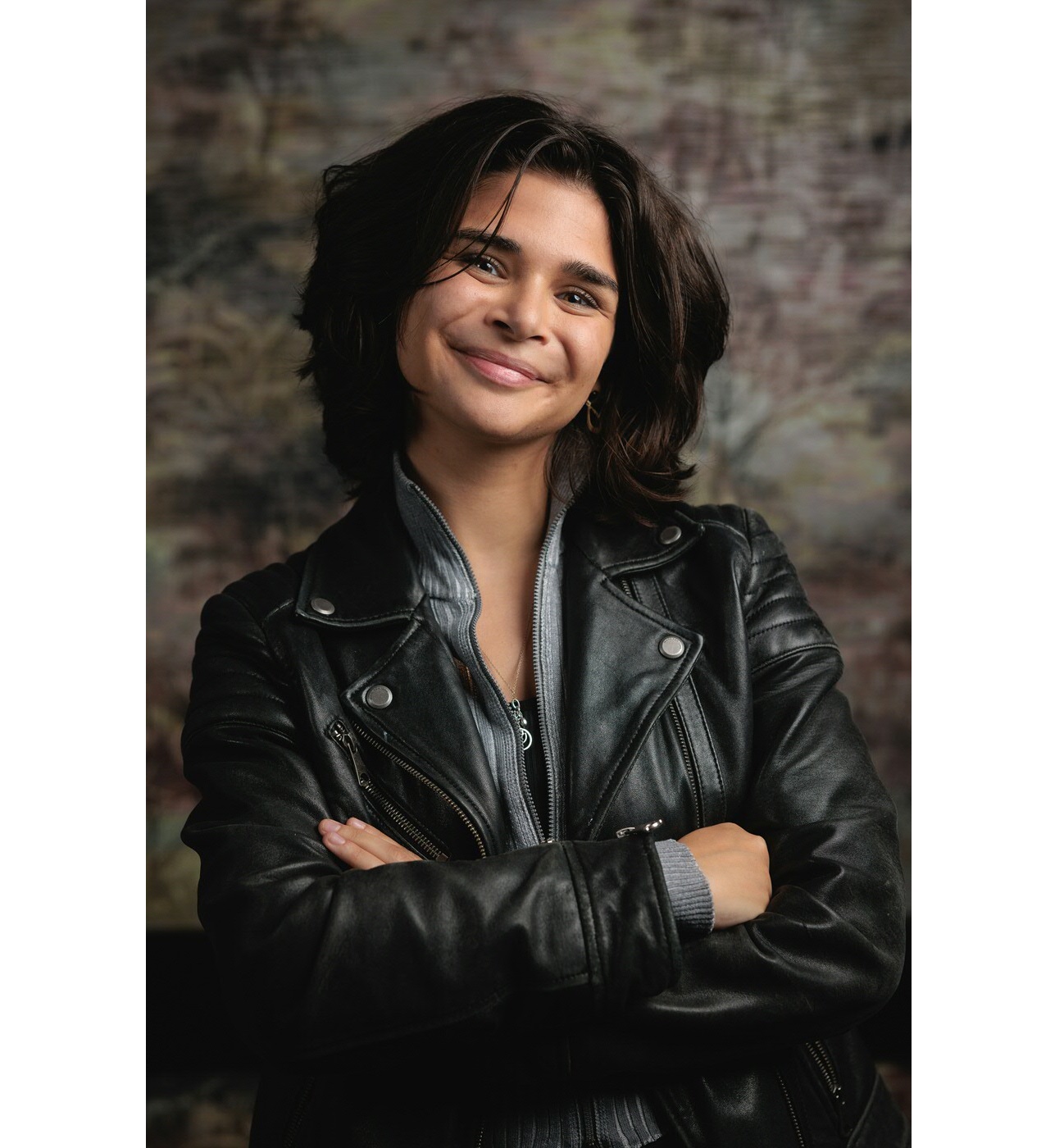
My name is Liz Winterhalter and I am a student in the International Relations and International Organizations Bachelor’s programme. I was born in the United States but was raised mainly across the Middle East and Europe. This cosmopolitan start to my life has motivated me to pursue the study of politics and of course take a major interest in the languages and cultures of the world. As far as hobbies go, I love going to the gym, playing video games, drawing, knitting, and playing chess. Additionally, next to my studies, I am an active member of the IRIO study association Clio.
I chose the IRIO programme here at the University of Groningen because I saw so much potential in the classes that are provided. Due to my background of moving, I had absolutely no geographical limit to where I could place my application, but Groningen spoke to me for three main reasons. The first reason is that the courses within the programme are specific. With IR studies in general, they tend to be very broad, so seeing that the individual courses are all for a specific field was very intriguing. Secondly, I loved the built-in language course to study. Language learning is a huge passion of mine, and having another language in the field of IR is an invaluable skill. Lastly, the overall flexible course structure, and the ability to have a bachelor's degree that can really be supplemented with anything additional you wish to take is a huge advantage.
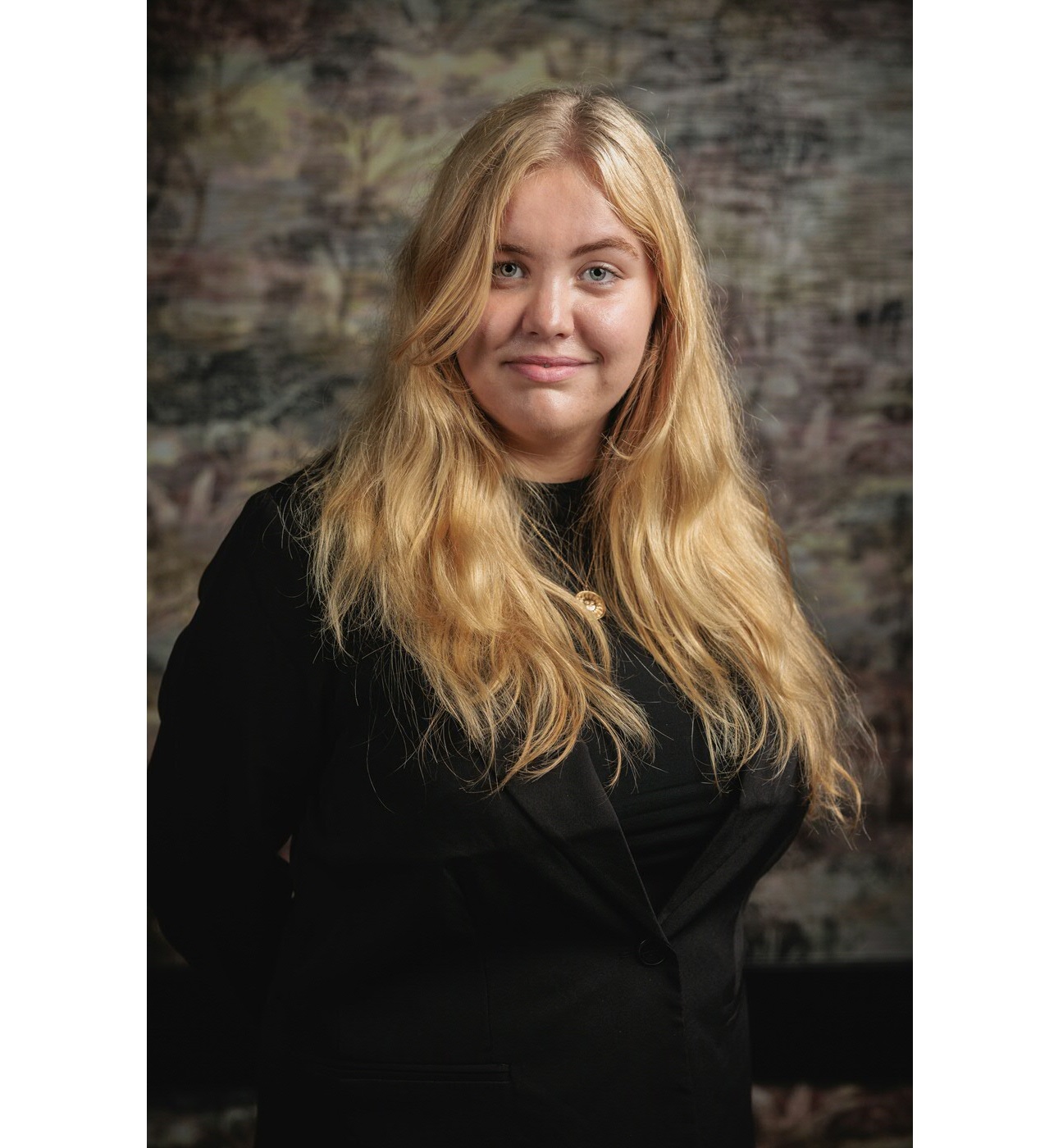
Ik ben Isa en ik studeer Internationale Betrekkingen & Internationale Organisatie. Ik kom uit Overijssel maar ben in 2023 verhuisd naar Groningen. Momenteel ben ik actief lid van SIB (Studentenvereniging voor Internationale Betrekkingen) en speel ik twee keer per week volleybal bij Donitas. Naast studeren lees ik graag, speel ik piano, eet ik met vrienden en speel ik games.
Ik kwam voor het eerst in aanraking met IRIO omdat een familielid het studeerde. Een jaar later begon ik met het proberen van verschillende MUN-debatten en ontdekte hoe beperkt mijn kijk op de wereld eigenlijk was. Als kind besef je opeens dat de wereld veel groter is dan je achtertuin en dit was het moment ik besefte hoeveel groter dan dat het nog was.
Ik koos IRIO vooral omdat het zeer relevant is. Voor mij werd het leuk omdat alles wat je kunt leren toepasbaar is op echte nieuwsberichten en actuele debatten. Het idee om wereldwijde problemen te kunnen ontleden voorbij generalisaties zoals bijvoorbeeld 'dit land/ding is slecht' naar 'waarom?' en 'hoe?' sprak me erg aan. Ook leek IRIO de beste studie voor mij omdat het veel verschillende vakken heeft. Je krijgt een toolbox met internationale geschiedenis, economie, rechten, politicologie, filosofie etc. Daarnaast vond ik de studie in Groningen vooral uniek omdat het een vreemde taaldeel heeft. Ik overwoog bijvoorbeeld diplomatiek te gaan doen en het wegnemen van taalbarrières komt erg goed van pas.
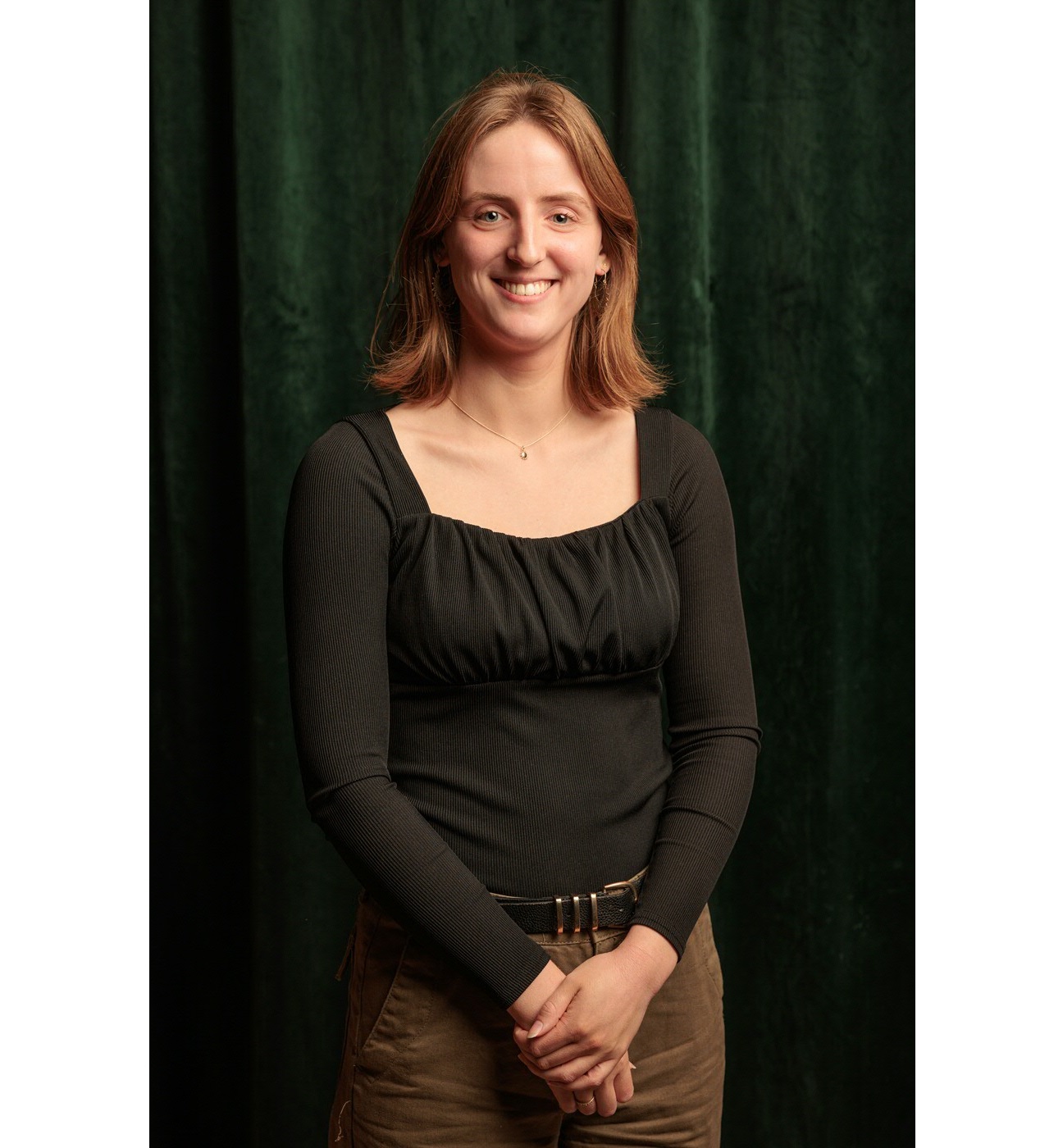
My name is Sofie, I am 19 years old and since 2020 I have been studying International Relations & International Organization (IRIO) at the University of Groningen. In my spare time I take boxing classes at the student organization ACLO and participate in fun activities organized by Study Association Clio.
I chose IRIO because I am interested in how the international world works. I would like to learn how countries and international organizations interact with each other, how international cooperation arises, and what causes international conflicts. IRIO seems the best study for this, because it has courses on history, politics, law and economics. Because of these different perspectives, you gain insight into all aspects of the international world. Moreover, these perspectives result in a varied programme that is never boring! I am also very enthusiastic about the foreign language as part of the IRIO programme, because I believe foreign language skills can be very useful in an international career. Ultimately, an international career is my ultimate goal and the IRIO study seems like a good starting point to achieve that.
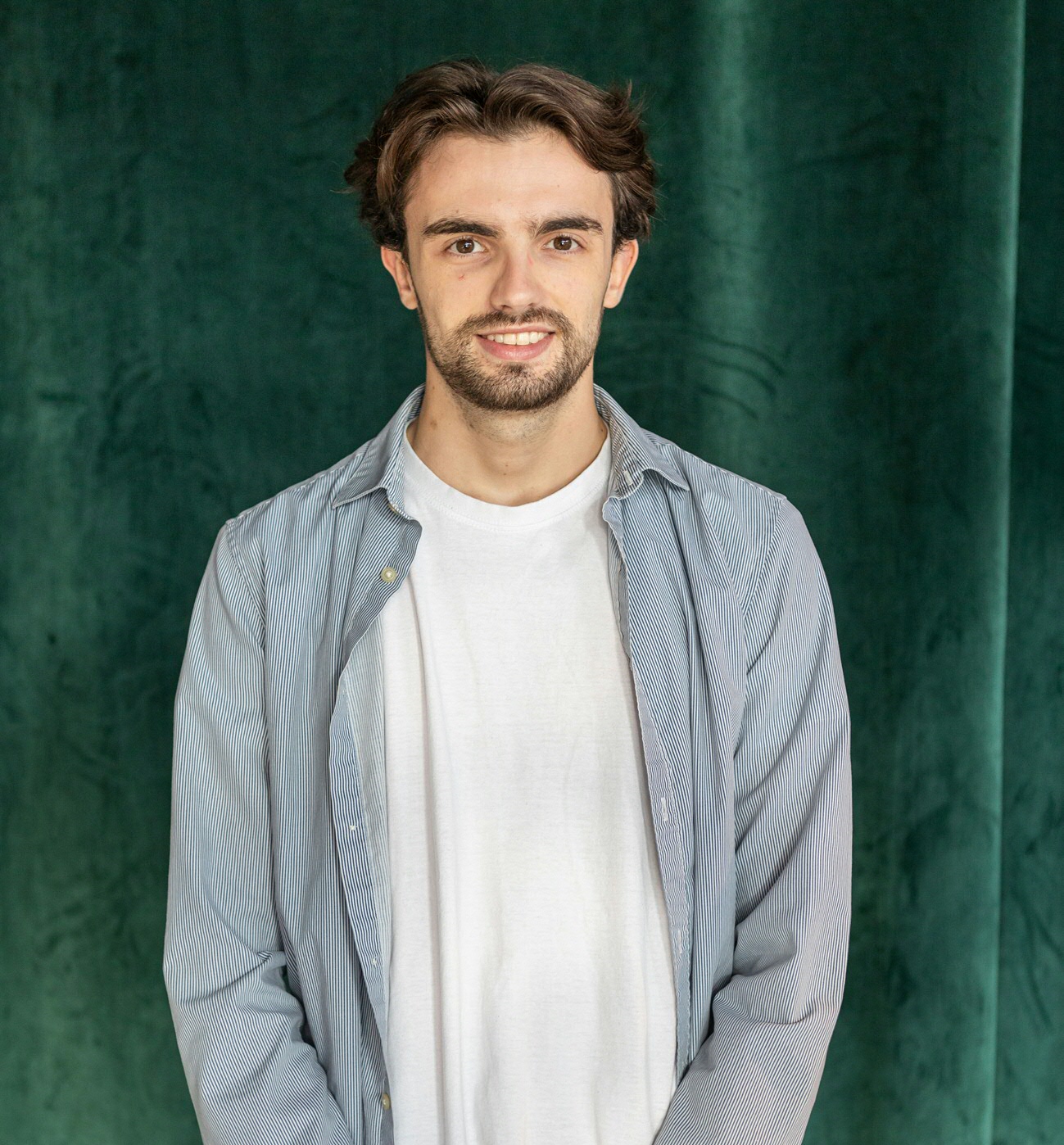
After studying French law for almost two years, I was looking for a broader programme where I could fully study in English and that would give me the possibility to learn about various subjects, such as law, economics, history, politics. However, the feature that convinced me to apply for this programme were the compulsory language courses that allow me to learn a foreign language intensively. I picked Chinese and studying this language is so much fun!
The international aspect of the programme is also extremely interesting. You meet people from all over the world and get to know more about different cultures, which is exactly what I needed after spending 20 years in the same town. During your studies, you learn about the world and how it is constructed. You will start to feel closer to this world, which at first seems so unreachable.
In my opinion, one of IRIO biggest strengths is the variety of assignments. You will have to choose your own topics to write your essays, but you will also have to shoot videos, prepare presentations, and write papers in groups.
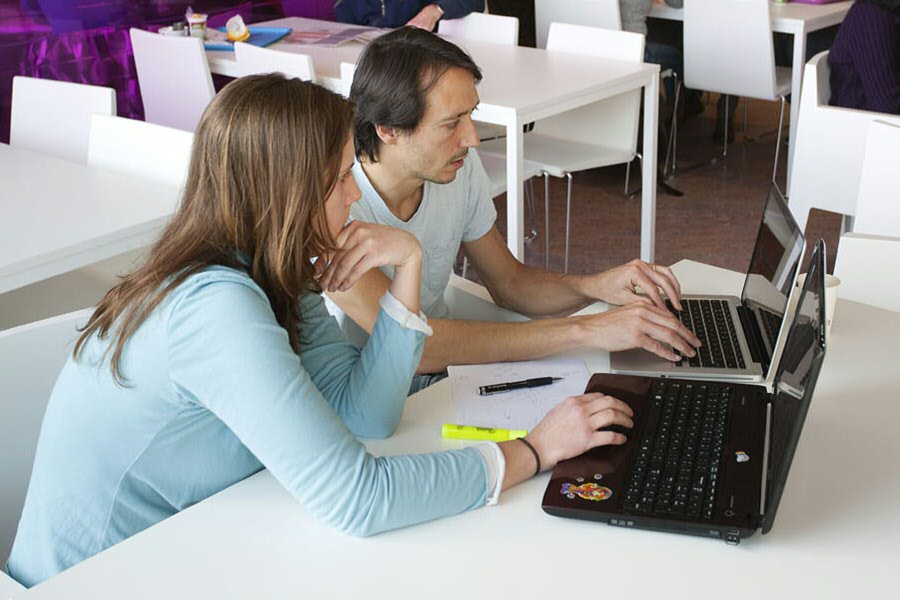
Are you at secondary school and want to know what studying at university is like? The International Relations and International Organization (IRIO) programme is offering a web class! This online course from the University of Groningen is specially designed for secondary school students. Try out what it takes to study IRIO by participating in this 4-week long course filled with various academic materials and completing assignments about the main topics of this bachelor programme.
The course takes about 10 hours in total and you can receive a certificate upon the completion of the online course.
If you are interested in an IRIO web class, register here.
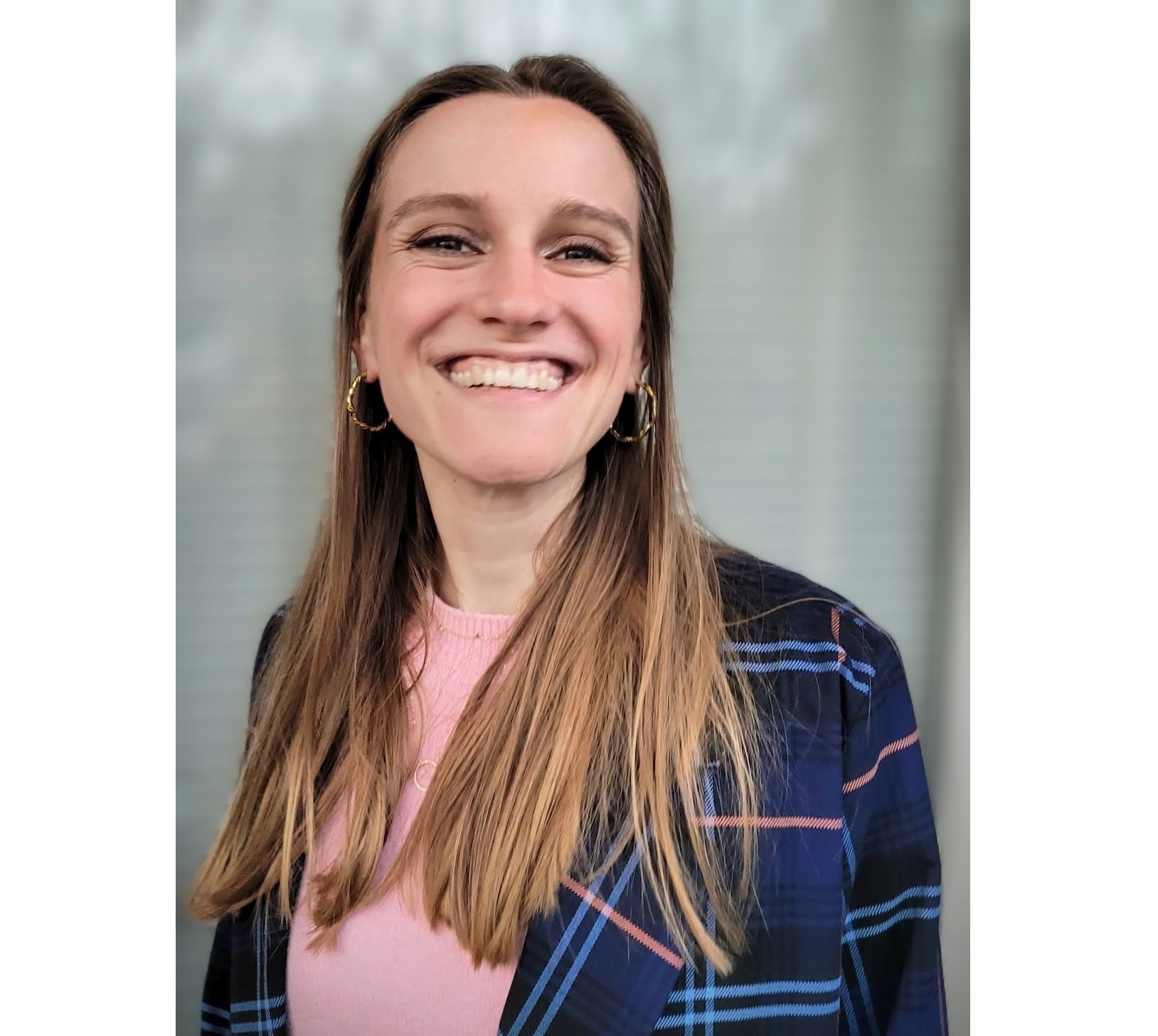
After I graduated from my BA programme, I went on to study the Master’s programme Sustainable Development (with a focus on Earth System Governance) at Utrecht University. After studying IRIO—and thereby understanding how the world can be perceived—it made sense to me to study how the world could or should be.
Having said that, I could have gone many other directions with my BA. As IRIO offers an interdisciplinary programme, you can truly forge your own path. I have friends who went on to study law, political economy, crisis management and even one who ended up studying marketing.
Currently I work as a sustainability advisor at Rijkswaterstaat (an executive organization of the Dutch Ministry of Infrastructure and Water Management), with a focus on climate adaptation and riverine litter. After finishing my Master’s, I started with the traineeship of Rijkswaterstaat and ended up staying in my current position. It was actually my sister who suggested the organization might be a good fit for me.
I think one of the main benefits of studying IRIO is that you learn to assess the world around you from different perspectives, due to IRIO’s interdisciplinary courses. Other skills that you develop during IRIO are analytical thinking and writing, which I both apply daily. The ability to write comprehensively is key in a governmental organization, where being able to type up a good briefing can make the difference in leveraging your goals.
Another benefit of my BA is that I understand the broader policy context which I now work in. As an executive organization of the Ministry of Infrastructure and Water Management, we execute both Dutch and European policies. It’s really interesting to see how this broader policy context interacts with the work we do at Rijkswaterstaat on a daily basis, and that it’s not just a one way street but the interaction goes both ways.
Be open to different experiences during your BA, in order to figure out the direction you want to take after your BA (but also for the sake of fun :)). I think most students only start to think about their future after their BA as they reach their final year, but you should really use the years leading up to that to attend activities and try out different types of experiences. There’s exchanges, internships, extra courses or something as simple as attending activities by IRIO’s Study Association Clio.
During my BA I took extra courses, went on an exchange to Queen’s University in Canada—which was a very formative experience—and was very active at the Study Association Clio and participated in many of their activities. I knew I wanted to continue studying in the direction of sustainability after I attended one of the alumni talks organized by Clio. Sometimes opening yourself up to those types of activities can provide new insights.
Therefore, my advice would be: do not only focus on your study books, but go out and experience IR in practice!
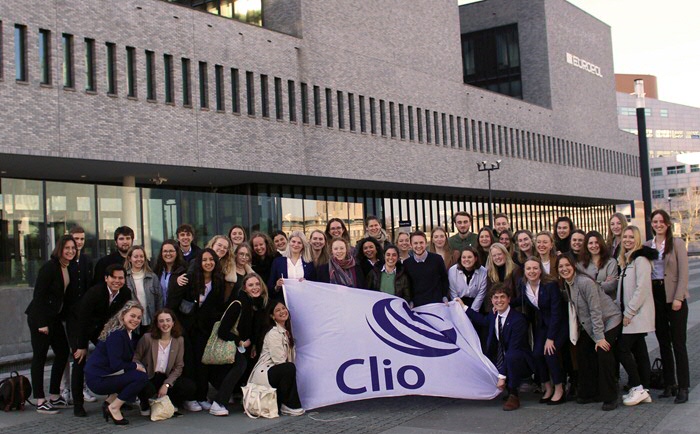
Clio is the study association of International Relations and International Organization at the University of Groningen.
It has around 1000 members and is one of the largest study associations in Groningen and the largest study association at a Dutch Faculty of Arts. Clio organizes numerous events including parties, workshops, excursions and offers services like high-quality summaries, the internship database and various discounts around Groningen.